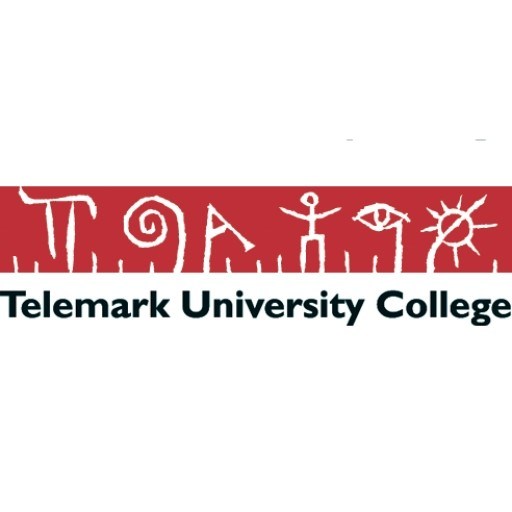Environmental Science at Telemark University College offers a comprehensive interdisciplinary program designed to equip students with the knowledge and skills necessary to understand and address complex environmental challenges. The program combines principles from natural sciences, social sciences, and technology to provide a holistic view of environmental issues such as climate change, biodiversity loss, pollution, and sustainable resource management. Students will engage in both theoretical studies and practical applications, including fieldwork, laboratory experiments, and project-based learning. The curriculum emphasizes sustainable development, environmental policy, and the impact of human activity on ecosystems. Throughout the program, students will develop critical thinking, problem-solving abilities, and the capacity to analyze environmental data effectively. The program prepares graduates for careers in environmental consultancy, research, policy development, and management within various sectors including government agencies, private companies, and non-governmental organizations. By fostering a strong understanding of ecological principles and socio-economic factors, the program aims to produce environmentally conscious professionals capable of making informed decisions to promote sustainability. The program is designed for students passionate about nature, science, and societal well-being, who are committed to contributing positively to the protection and sustainable management of the environment.
Environmental Science at Telemark University College offers a comprehensive and interdisciplinary education designed to equip students with the knowledge and skills needed to address complex environmental challenges. The program focuses on the scientific, technological, and societal aspects of environmental issues, emphasizing sustainable development and responsible resource management. Students will explore core disciplines such as ecology, geology, chemistry, biology, and environmental technology, gaining a solid foundation in environmental sciences. The curriculum includes courses on environmental monitoring, pollution control, climate change, conservation, and environmental policy, preparing graduates for diverse careers in environmental consultancy, research, policy-making, and management.
Throughout the program, students are encouraged to develop critical thinking and problem-solving abilities, applying scientific methods to real-world problems. Practical training is integrated into the curriculum through laboratory work, field studies, internships, and project-based learning. These experiences provide students with hands-on skills and a better understanding of how to assess environmental conditions, analyze data, and implement sustainable solutions. The program also emphasizes the importance of interdisciplinary collaboration, ethical considerations, and effective communication, ensuring graduates can work effectively with stakeholders from various sectors.
Students have access to state-of-the-art laboratories and participate in research projects related to local and global environmental issues. The program prepares students for further studies or employment in sectors such as environmental consultancy, government agencies, non-governmental organizations, research institutions, and industry. With a strong focus on sustainability and innovation, this programme aims to produce environmentally conscious professionals capable of making a positive impact on society and the planet. Graduates will be well-equipped to contribute to the development of sustainable practices and policies that protect and preserve the environment for future generations.
Financing studies in the Environmental Science program at Telemark University College are designed to be accessible and supportive for students from various backgrounds. Norway offers a range of financial aid options for international and domestic students, making higher education affordable and manageable. Full-time students residing in Norway or with valid residence permits are generally eligible to apply for student loans and grants from the Norwegian State Educational Loan Fund (Lånekassen). These funds can cover tuition fees, living expenses, and related costs, providing a stable financial foundation throughout the study period.
For international students, funding opportunities may include scholarships, grants, or tuition fee waivers offered directly by Telemark University College or external funding bodies. While tuition fees for some programs might apply to non-EU/EEA students, many Norwegian universities, including Telemark University College, aim to promote internationalization through scholarship schemes. Students are encouraged to explore funding options early, including applying for scholarships that recognize academic excellence or specific eligibility criteria such as country of origin, field of study, or intended research areas within Environmental Science.
Additionally, students can seek part-time employment opportunities during the study period. Norway has a strong labor market for students, with many part-time positions available in various sectors, including environmental projects, research assistance, or administrative roles within the university. Working hours are regulated to ensure they do not interfere with academic commitments, and employment can significantly offset living costs.
For students from the European Union or EEA countries, financial support structures are similar to those available for Norwegian students, and they can apply for the same grants and loans through the Norwegian State Educational Loan Fund. Non-EU/EEA students should verify specific scholarship opportunities and funding eligibility criteria when enrolling. Overall, Telemark University College strives to provide comprehensive financial information and support to ensure students can focus on their studies in Environmental Science without excessive financial distress.
Environmental Science at Telemark University College offers a comprehensive education focused on understanding the complex interactions between humans and the environment. The program is designed to equip students with knowledge of ecological principles, environmental management, and sustainable development practices. It emphasizes practical skills through laboratory work, field excursions, and project-based learning, preparing graduates for careers in environmental consultancy, conservation, and policy development. The curriculum covers key topics such as ecosystems, biodiversity, pollution control, renewable energy, climate change, and resource management. Students learn to analyse environmental data, assess environmental impact, and develop strategies for sustainable living. The program is suitable for individuals interested in addressing global environmental challenges and making a positive impact on society. It also provides a foundation for further studies at master’s level or in related fields, fostering critical thinking and problem-solving skills. The multidisciplinary approach includes courses in biology, geology, chemistry, and social sciences, reflecting the interconnected nature of environmental issues. Students benefit from partnerships with local environmental organizations and industries, gaining real-world experience and networking opportunities. The program aims to produce environmentally conscious professionals who can contribute to sustainable development initiatives both locally and globally. Graduates are prepared to work in governmental agencies, non-profit organizations, private companies, and research institutions. The program is delivered in English to accommodate international students and facilitate global collaboration. Overall, the Environmental Science program at Telemark University College provides a rigorous, practical, and interdisciplinary education aligned with current environmental needs and future challenges.






